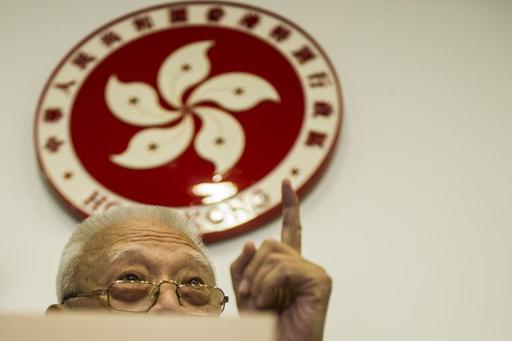China may have won the latest round in its long-running battle with Hong Kong over genuine democracy, but in a city simmering with anger and ingrained with activism the issue will not go away.
Pro-democracy campaigners had threatened for more than a year to take over the streets of the city’s financial district if their demands for full universal suffrage were not met.
But Beijing called their bluff, insisting the financial hub’s next leader be vetted and dealing a major blow to Hong Kong’s decades old democracy movement.
Activists have since struggled to respond.
After initially vowing a new “era of civil disobedience”, leaders from Occupy Central, the largest grassroots group, backtracked, admitting little can be done to change China’s mind — and even hinting that support for their cause was waning.
But while senior officials in Beijing might look with glee at the discord in the ranks of Hong Kong’s democracy campaigners, the issues that fuel them — and encourage hundreds of thousands of protesters onto the city streets every year — still remain.
Regardless of whether the city’s civil disobedience thrives or fizzles out, China’s crucial economic hub still faces a political crisis brought on by deepening social anger, analysts say.
Increasing income inequality and the perceived cosiness between city officials and business elites have driven the demand for a more representative and accountable leader, he explained, adding that the chief executive has always been viewed as unaccountable.
– City could become ‘ungovernable’ –
Unless Beijing does more to address this anger, analysts warn, the city risks becoming ungovernable, with continued street protests and outraged pro-democracy lawmakers promising to be a permanent thorn in the government’s side.
Ma Ngok, a professor at the Chinese University of Hong Kong, said the demand for greater democracy was just one manifestation of a much wider anger over inequality and reduced opportunities.
The wealth gap in Hong Kong, already one of the world’s widest, shows little sign of abating.
Anger also bubbles over rising living costs and skyrocketing property prices. The government last year found almost 20 percent of residents in the city of over seven million were living in poverty.
Pro-democracy groups recognise this. Knowing they now have little chance of defeating Beijing over universal suffrage, networks like Occupy are changing tactics and settling in for a much longer and protracted fight with the mainland.
– Delicate balance –
Occupy organisers know they tread a difficult path between keeping popular anger simmering and not losing local support through overly confrontational actions in a city where economic stability is a golden calf.
The movement meanwhile has gone into damage limitation mode since a series of despondent interviews by its leaders, sending out fiery statements reaffirming their commitment to direct action.
Hong Kong University law expert Simon Young said Occupy was caught between “a rock and a hard place” — the rock China, and the hard place Hong Kongers’ expectations.
Meanwhile Hong Kong students — many of whom are at the more radical end of the political spectrum — have vowed to press on with their own civil disobedience campaign.
On Saturday, multiple student groups from different universities will vote on a plan to hold a week long strike later this month.

COMMENTS
Please let us know if you're having issues with commenting.